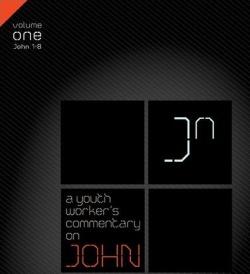“For God so loved the world that he gave his one and only Son, that whoever believes in him shall not perish but have eternal life” (
John 3:16 is the most famous verse in the entire Bible, and with good reason. It is, perhaps, the single line that best expresses the heart of the gospel: God’s saving love for us all, as expressed in his sending his only Son, Jesus.
The word (monogenes) that is translated here as “one and only” could mean “heir” or “unique.” The same term is used in
The good news of the gospel is that God loved this evil, sinful world of fallen humanity. Jesus didn’t enter this world to condemn people but to reach out to them. God would rather save the world than judge the world (
This idea that God’s love is wide enough to embrace all people is distinctively Christian. God’s love isn’t confined to a national group or spiritual elite. It is God’s nature to love. This is a marked difference from the many of the surrounding religions (then and now) that taught that salvation is limited to a select few.
An old legend tells of a stranger attempting to circle the globe who found himself trapped in quicksand. As he slowly sank, Confucius came by and said, “Confucius say, it is evident man should avoid such situations.” And he went on his way. Mohammed came by and said, “Alas, it is the will of Allah.” And he went on his way. Buddha came by and said, “Let this man’s dilemma be an illustration for many.” And he went on his way. Krishna came by and said, “Better luck next time.” And he went on his way. Jesus Christ came by, reached down to the man and pulled him out. The stories found in other faiths talk primarily about the human effort needed to reach up to heaven. The Christian story is that Jesus reaches down from heaven and pulls humanity out of the quicksand of sin. God sent his son to save us.
God’s saving act is an expression of love. John’s gospel uses two words that can be translated “love,” agapao and phileo. John uses these words almost interchangeably although they have slightly different nuances in the Greek. For example the term agapao can be found in 3:16,
Questions for Discussion
• How does it feel to know the creator of the universe loves me?
• How has this changed my life?
• Does my behavior indicate I love darkness or light?
• John 3:16 is very familiar to most people, especially those who’ve grown up in the church. But if I look at with fresh eyes, what do I see? What does it say about God? About me? About my life?
Les Christie chairs the youth ministry department at William Jessup University, in Rocklin, Calif., where he has taught the Gospel of John for the past 15 years. David is provost and senior vice president at Biola University. He is a specialist in Roman social history and in the New Testament. This lesson is excerpted from Les and David’s book, A Youth Worker’s Commentary on John, Volume 1 (Youth Specialties/Zondervan, 2011) with permission.




